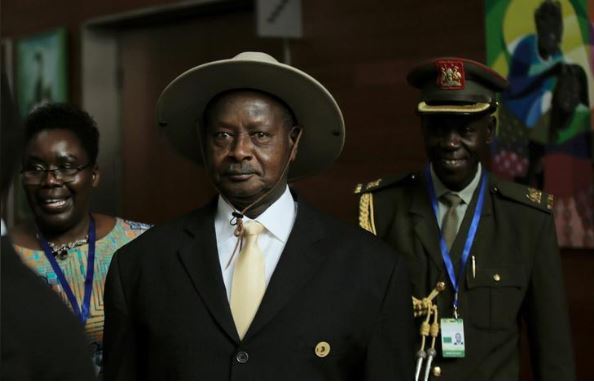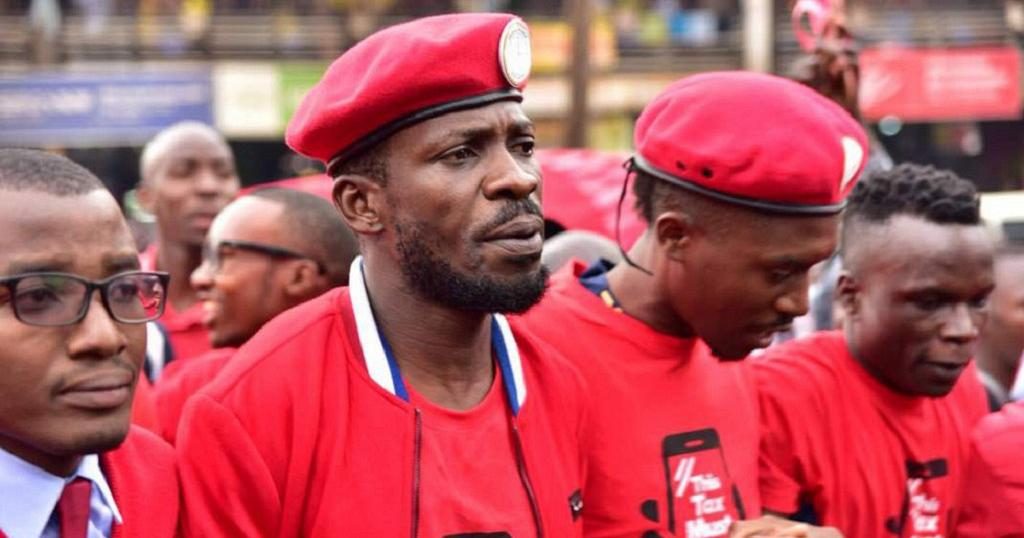
President Museveni opened a gap between him and his leading challenger Robert Kyagulanyi, alias Bobi Wine, as the Electoral Commission (EC) started releasing the results of the January 14 presidential election Friday.
The EC declared just after 2 pm Friday that Mr Museveni had polled 2,219,418 votes against Mr Kyagulanyi’s 941,068 votes with results from34.3 per cent of the polling stations reported.
Forum for Democratic Change (FDC) candidate Amuriat Oboi had so far polled 118,310, representing 3.46 per cent of the votes so far tallied, while each of the other candidates had attracted less than a percentage point.
The other candidates are Alliance for National Transformation’s Mugisha Muntu, Democratic Party’s Norbert Mao and independent candidates Joseph Kabuleta, Nancy Kalembe, John Katumba, Willy Mayambala, Fred Mwesigye and Henry Tumukunde.
Mr Kyagulanyi had addressed a press conference earlier in the day to dispute the results of the election that the EC had declared, saying there had been rigging.
Mr Kyagulanyi told the media: “This morning as you have all been hearing from the provisional results of the EC, you have seen that Mr Museveni has been given 63.92 per cent and we are being given 28.32 per cent. We reject these results because we have seen the rigging pattern even from the time we were campaigning.”
He continued: “Many of my agents in most districts in the west and north, especially West Nile, were arrested and the EC has concentrated on reading results from districts that they can easily rig. They are not announcing results from districts of the central region and the eastern where we have overwhelming support. We believe we have a comfortable win over Museveni in this election.”
Responding to the allegation, Electoral Commission chairman Simon Byabakama said: “In law we say the burden is on he who asserts to establish the facts, so the onus is on the Honourable Kyagulanyi to prove (the allegations). First of all the polling ended Friday and the results being displayed here were captured at the polling stations where every candidate had agents.
The law requires us to give an agent of each candidate a copy of the declaration form. It is not an option by the Electoral Commission but a command by the law. Now, therefore, since the Honourable Kyagulanyi is in possession of declaration forms of the 34,684 polling stations, let him show the country how the results have been rigged. I do not, therefore, appreciate the assertion that these results we are reading out here have been rigged.”
Mr Kyagulanyi said the switching off of Internet and the blocking of election observers from the international community and the deportation of journalists from other countries were big signs that the authorities were keen to do everything in the dark.
Mr Kyagulanyi added: “The elections that are coming in are not from the district tally centres and the EC is clearly not in charge of anything now because they don’t know where the elections are coming from.”
He vowed to take legal action.
Mr Byabakama readout results without indicating where they had been drawn from, prompting questions from journalists as to why the Electoral Commission had made no effort to break down the number.
In response Mr Byabakama said: “A presidential election has only one constituency, which is the whole country,” Mr Byabakama said, adding that the results may be displayed on the screens provided at the national tally centre at Kyambogo University grounds or will be provided at the end of the exercise.”
Mr Byabakama was also asked why the results from many districts that are close to the tally centre had not been relayed to the tally centre almost a day after the close of polling.
He said: “An area like Kampala is very big and has many voters. One division in Kampala may have many voters and polling stations than the entire Karamoja sub-region.”
Mr Willy Mayambala, an Independent candidate, was present at the tally centre as provisional results were being released, but no major political candidate had representation at the venue.
Asked if he was able to reconcile the results that were being read at the national tally centre with his own records as the EC chairman had said, Mr Mayambala said: “We have been engaging the Electoral Commission before the campaigns and during the campaigns when the police were brutalising us but up to today we have never received any response.”
The issue of results declaration forms has been touchy over many rounds of elections, with President Museveni’s opponents alleging that their candidates are either arrested or denied copies of the forms, making it impossible for the Opposition to ascertain their true results. Each presidential election organised under President Museveni since 1996, like the ones before he took power, has been disputed by the losing candidates.

